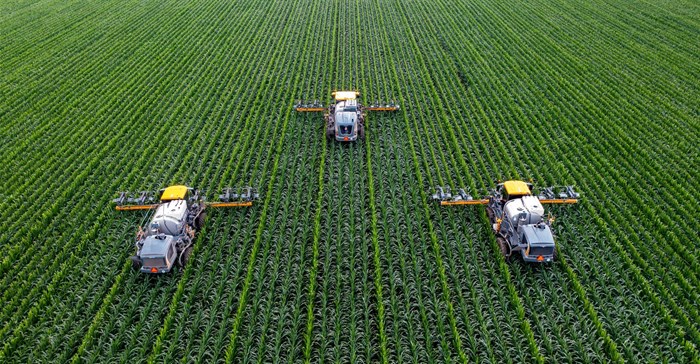
By the year 2050, the global population is projected to surpass nine billion, presenting a substantial challenge in ensuring an adequate food supply for everyone. Addressing this imperative, the agricultural sector must undergo a remarkable transformation, aiming to increase production by approximately 69% from 2010 to 2050.
This progressive shift brings a new level of intelligence into farming operations, making more sustainable and efficient farming possible.
This shift in what farming looks like and how agriculture is done signals a revolution in the industry; with new technologies set to push the sector to take the next giant innovation leap. But this cannot and will not happen without the right foundations. These include, among other things, reliable connectivity and clean data.
According to research from McKinsey & Co., if connectivity is implemented successfully across the agricultural industry, the sector could contribute an additional $500bn in value to global gross domestic product by 2030.
This would alleviate much of the pressure on farmers. But even in more digitally advanced economies, the percentage of farmers using connected equipment is low. And, perhaps unsurprisingly, these numbers plummet further when you look at farms in countries where network coverage is low, and the high cost of connectivity remains prohibitive.
Moving on to the data side of things, there is incredible potential for farmers to collect more data and then leverage this information to improve everything from the amount of water they use to irrigate their crops to how much they charge for their products when they sell them on down the supply chain if retailers don’t dictate the price. But data quality is critical.
Across the tech industry, the cautionary adage: “garbage in, garbage out” is widely used to showcase that the input's quality determines the output's quality. In the agricultural industry, digital farming can optimise complex farming operations, but only if the data fed into these systems is accurate, clean, and current.
Poor data renders good technology tools unreliable, and manufacturing industries have already realised that clean data is required to feed forecasts of demand versus supply and what will sell.
When agricultural ERPs are fed the correct data – for example, information on long-term market and global trends in food consumption and preferences and shorter-term help in where the best purchasers of crop and meat produce are – they deliver customised reports and dashboards featuring data-based insights, so farmers have all the information they need to make the best decisions.
In addition, predictive analytics can forecast trends such as the growing super-health trend, providing insights on effectively differentiating processes, products, and distribution to feed lucrative markets. ERP solutions can also be used to understand and anticipate how to quickly redistribute or recycle quantities of potential food waste, such as offcuts, near-use dates, etc., to needy and starving markets.
In action, these systems make it possible for farmers to farm more effectively – and with increased precision – without actually having to be on the farm. This additional layer of efficiency is critical because if the globe’s farmers are to increase their productivity and yield enough to feed future generations, they need to develop ways to reduce waste, conserve their resources, and mitigate the effects of climate and economic change.
Currently, cropland expansion serves as one of the main strategies to boost agricultural production in countries worldwide. But this expansion is also a significant driver of biodiversity decline. With the right tools in place, farmers needn’t expand their footprint.
Tools such as IoT devices arming machine learning (ML) with terabytes of raw data to drive AI to distil clear, reliable insights to farmers to de-risk their ‘gut feel’ and support data-led decision-making.
Farmers can implement measures to ensure their processes are as efficient as possible. In action, GPS-equipped tractors could be used to monitor and manage the usage of farming equipment and, thus, reduce energy consumption.
Sensors can be fitted to silos to trigger automated reordering when stock reaches a certain level; this lowers inventory costs. In addition, trackers can be fitted to livestock to curb disease outbreaks and crops to improve observation and care.
Using autonomous farming equipment, farmers can operate a variety of equipment at the same time and without any need for human intervention. Weather tracking tools empower farmers to manage better increasing environmental pressures and the economic impact of unexpected weather events.
All of this provides modern farmers with unprecedented visibility, enabling them to maximise their resources and mitigate any uneconomical and inefficient farming practices.
As outlined above, adequate foundations must be in place to deliver any of this. Ensuring this happens demands that governments, industry stakeholders, policymakers, and any other relevant actors work together, including funding the application and growing the uptake of this technology.
Agriculture players must partner with telcos to ensure they have the connectivity they need to leverage new connected agriculture ecosystems. The public sector must work alongside industry to improve the development and deployment of broadband networks, particularly in rural areas.
If the industry is to drive progress and maximise its potential in the future, the time to act is now. As farming feeds, the local and global population, data will provide the technology that drives effective, lower-waste farm-to-consumer channels. The switch to technology is crucial to avoid future food poverty.